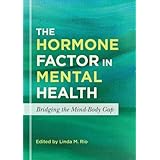From PWN contributor Linda M. Rio, Marriage and Family Therapist – Coronavirus is in almost every TV and social news soundbite these days. Because of this Dr. Lewis Blevins and Jorge Faccinetti recently posted their informative thoughts in the podcast CORONAVIRUS. There are also special concerns applicable to pituitary patients that need to be addressed.
It is hard to avoid “catching” not the virus itself but the fear, hopefully not panic with words such as “pandemic,” “outbreak,” “quarantine,” not to mention getting differing opinions from government and other agencies we all look to for guidance and leadership to protect us. In modern Western cultures, many of us have nearly forgotten just how vulnerable we can be to something microscopic in size. Many employment settings have quickly changed workplace settings and culture to protect employees as well as themselves from any potential liability for not responding appropriately. Many businesses altered or cancel travel plans Churches have changed some long-established rituals. Suddenly we are all supposed to stop greeting one another with handshakes, hugs, or kisses. These are significant shifts in how we relate and communicate with one another. So, how does this affect our children and families, and what can parents and caregivers do to assist children in being resilient to current and future fears?
In this current “crisis” (I use this term with caution) similarly to others we have faced — including school and other shootings, school lock-downs for a variety of situations, H1N1 Virus/flu, etc., various financial and housing crises, and, of course, 9-11 — no matter what the external world “threats” may appear to be, the best antidote for children is to have the most trusted adults in their lives to talk with them about it. Firstly, however, before actually doing the talking, it is vitally important for adults to ask and gently probe the child for what do they know or care about? Many times, we adults presume children are aware of what we are and may unnecessarily go into far more discussion and detail than the child can process or has any interest in. Some children at very early ages are keenly attuned to the grown-up world; others, even much older, can care less. So, it is crucial to tailor the discussion to each child. I always recommend starting with broad, open-ended questions then progress to more detail depending on how the child responds. For example, a parent might begin with, “So, I was wondering how things at school are going? Is there anything new or different that the teachers or kids are saying?” Later, depending on the child’s responses, along with any changes you may have noticed with the child’s behavior (more frequent handwashing, behaving in an anxious or worried manner, etc.) questions can venture into, “So, do you have any questions for me about anything you heard or saw on TV or Facebook?”
If your child does ask a difficult question, “Are we going to die?”, it will be essential to respond with honesty but without alarm. Reassuring children with a blanket, “Don’t worry…it is all fine…you are too young to worry about such things…” will only fuel their fear-filled brains. It’s OK to say you don’t know, or that you are trying to understand what the experts are saying. It is also good to own your own emotions, so if you are a bit worried, then say so, but with the reassurance that being the adult, you will be sure to protect the child and yourself.
For those with a diagnosed or suspected pituitary, adrenal, or other neuroendocrine disorder, there may also be additional issues at hand. Because the endocrine system, in large part, manages and guides the human body to deal with stress (physical and emotional), often patients with a challenged endocrine system are more highly susceptible to stress of any kind. Even moderate or mild stressors can affect cortisol and other hormones that respond to what is perceived as an alert. For this reason, as a positive coping skill, patients often need to learn and develop an almost super awareness of potential triggers and actual threats to best manage. But, of course, none of us can avoid stress as it is a part of life. So, something that is of a global concern will inevitably be felt by pituitary patients as well as the broader population. As a result, patients must take extra measures toward their self- care. Pituitary World News has provided articles and other resources for patient/family self-care as well as encouraging each person to find their own best methods for decompression, de-stressing, relaxation, nurturing, and self-healing from daily stress.
Additionally, families of those with hormonal disorders may also become on the lookout for anything they have come to learn will negatively affect their loved one. This watchfulness, while possibly a lovely and positive thing, can also become an unnecessary fearfulness and lead to other less positive patterns of behaviors within the family. Children of pituitary patients can become hyper-alert and super-attuned to their mother or father’s daily struggles. All this means an even more critical reason to discuss and explain openly with all family members and find ways to counterbalance the fears and anxiety that may be promoted outside the safety of the family home. The family is the ultimate and best safe haven from all stressors and the best place for healing to occur as well.
Life has moments of great pleasure but also challenge. Events large and small that cause us to worry a bit, wonder, and not presume can be very good in promoting a plan for what needs to be done to respond in the best ways possible. Challenges such as the current one can help children and adults learn how to protect themselves, the importance of good health practices, and especially that all fears and worries can be talked about openly and honestly within the safety of the family.
Linda M. Rio, M.A., LMFT (805) 619-0950 www.Lindamrio.com
 Her book The Hormone Factor in Mental Health is available through Amazon.com and other major booksellers.
Her book The Hormone Factor in Mental Health is available through Amazon.com and other major booksellers.© 2020 – 2024, J D Faccinetti. All rights reserved.
